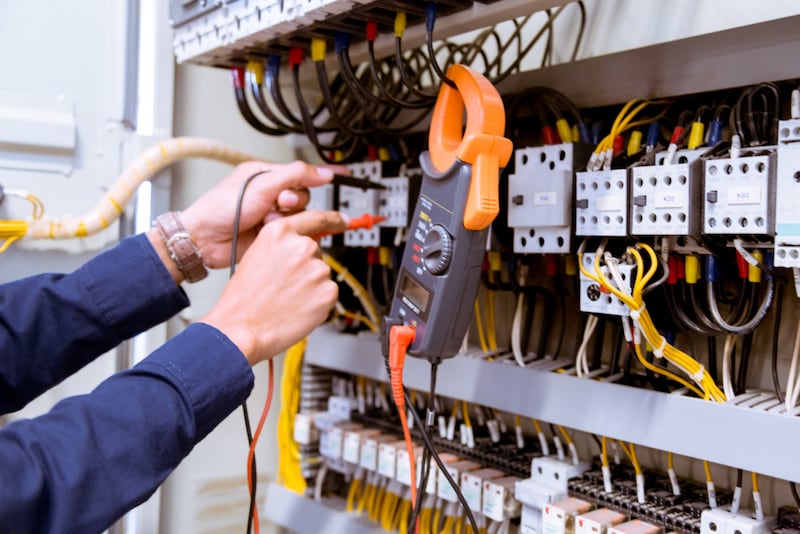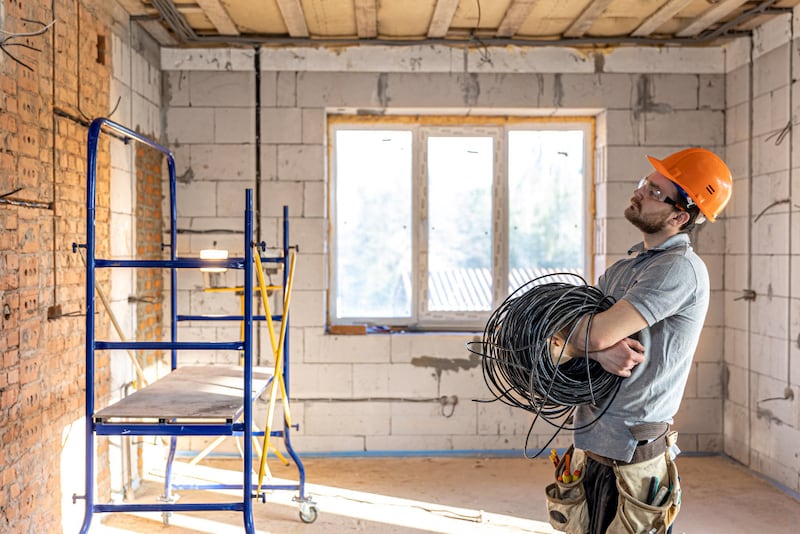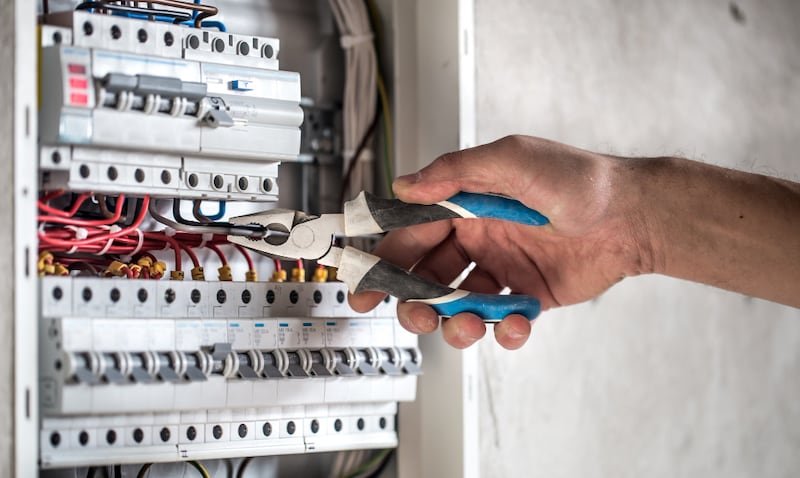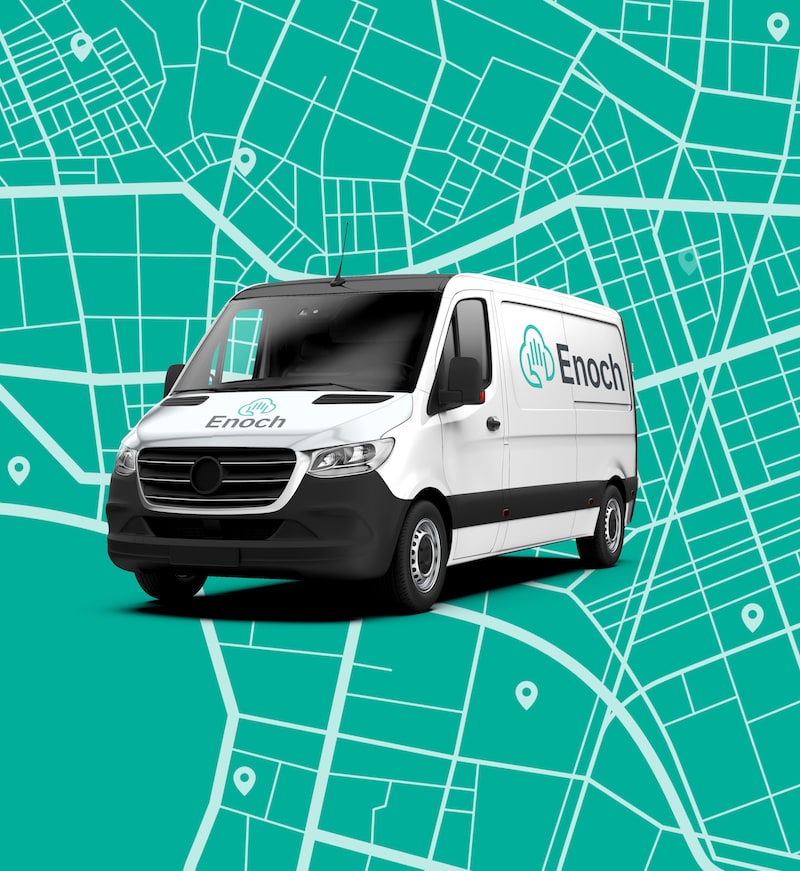Like many states, Texas closely regulates who can perform residential, commercial, and industrial electrical work through the Texas Department of Licensing & Regulation. In this article, we'll examine the process of becoming a licensed electrician in Texas, plus information about job prospects, careers, and more.
To become an electrician in Texas, you'll need an electrical license. Acquiring a license requires a combination of classroom learning, on-the-job training, continuing education courses, and successfully passing required examinations.
Whether you plan to do commercial wiring, service equipment, residential electrical work, or many other tasks, being an electrician in Texas requires a license.
The Texas Department of Licensing & Regulation (TDLR) is responsible for all aspects of license application, renewal, and examinations for anyone who wishes to become an electrician in Texas.

When you become an electrician you'll enter a field, that like many skilled trade fields, is consistently in demand. Residential and commercial development, the growth of renewable energy resources, and modernization of electrical grids, plus other trends, have created a rapidly growing job market for electricians.
In fact, the U.S. Bureau of Labor Statistics recently projected a growth rate of 8% in jobs for qualified electricians.
With median salaries of nearly $60,000 and accessible entry-level education requirements, becoming a licensed electrician is an excellent career path for many. Given the demand for electricians, salary prospects will probably improve over the near future.
Many electricians belong to the electrician's union, The International Brotherhood of Electrical Workers (IBEW). Union electricians can benefit from collective bargaining in matters of salary, vacation, pensions, and more.
You must be licensed to perform residential or commercial electrical services in Texas, and the type of license you qualify for will reflect the type of electrical work you do and your level of training and experience.
The licensing process can be broken down into four different levels: Apprentice Electrician, Residential Wireman, Journeyman Electrician, and Master Electrician.
The apprentice license is the starting point for an electrical career. As an electrical apprentice, you'll perform work under the supervision of a master electrician, journeyman electrician, or residential wireman.
While an Apprentice Electrician, you'll learn electrical wiring methods and other skills through on-the-job training and classroom courses, offered through trade schools or trade organizations and unions.
There is no examination or experience requirement, but you must meet the following criteria to apply for your apprentice electrician license:
The Apprentice Electrician license for an apprentice is valid for one year and must be renewed annually.

The Residential Wireman license qualifies the holder to perform electrical work in single- and multi-family homes not exceeding four stories.
The electrical services that the residential wireman performs may include wiring, installing electrical control devices, or a variety of other tasks related to electrical wiring and apparatus. Qualifications for the Residential Wireman license include:
The Residential Wireman license is valid for one year.
Becoming a Journeyman Electrician is the next step in the licensing and regulation process. As a Journeyman Electrician, you'll be licensed to perform electrical work, including a variety of electrical maintenance and installation tasks in residential and commercial structures.
To become a licensed Journeyman Electrician, you'll need to meet these criteria:
You must renew your journeyman license every year, and there is also a 4-hour continuing education requirement that must be completed annually.
The Master Electrician License is the highest license issued for electricians by the Texas Department of Licensing.
A licensed Master Electrician can supervise other electricians in addition to performing residential and commercial electrical work. Some of the requirements for the license include:
You must renew your Master Electrician license every year, and complete four hours of continuing education annually.

in addition to the licenses that we've discussed above, there are a number of specialized electrician licenses available in Texas. These include:
Links to the requirements and application process for these licenses are available here at TDLR.
As we've seen through our examination of the various licenses, getting an apprentice license is the key to getting started on an electrical career.
To begin the process you'll need a high school diploma, and a valid Texas driver's license or other identification. After applying for an apprentice license, you'll need to enroll in an apprenticeship program.
The Texas Department of Licensing & Regulation has a list of electrical apprentice training programs throughout the state.
You can also find apprenticeships through the Independent Electrical Contractors(IEC), or the Associated Builders and Contractors (ABC), as well as the Electrician Training Alliance Joint Apprenticeship and Training Committees (JATC).
Choose an apprenticeship program that blends classroom time with hands-on, on-the-job training. Electrician programs are offered by trade schools, community colleges, and other organizations. Different programs may focus on different aspects of electrical work, such as residential, commercial, or industrial. There are significant differences between the work involved in each of these categories.
Apprentice Electricians will work under the supervision of Master Electricians as they gain experience. Usually, after 4-5 years, an apprentice will have gained the experience necessary to apply for the next license stage, as a Residential Wireman or Journeyman Electrician. The licensing and regulation requirements for each of these vary, and depending on the license you're applying for you'll need to pass either the Journeyman Certification Test or the Residential Wireman Exam.
Once you've acquired 12,000 hours of supervised experience and been a Journeyman Electrician for two years, you can apply for a Master Electrician license. In addition to this work experience, you'll need to pass the Master Electrician Exam.

If you're interested in becoming an electrical contractor, you'll need to have acquired your Master Electrician license or employ one in your business. Then you'll need to get an Electrical Contractor License. This is a business license, so you'll need to show proof of insurance and financial responsibility.
The license will also specify your business type, e.g., sole proprietorship, limited liability company, etc. The license application is available here, from the Texas Department of Licensing & Regulation.
If you're committed to pursuing a career as an electrician, the electrician license exam for different license levels will need to be taken as you advance. While examination subjects change over time, you'll need to be familiar with this content:
This is not an all-inclusive list. Resources like tests.com, jadelearning.com, and others can be useful for finding practice exams. The TDLR is an excellent resource for electrician exam information.
One of our bedrock principles is providing professional services to our customers. We're one of the fastest-growing home service providers in the DFW area because we pride ourselves on our “Customer First” philosophy. This allows us to provide excellent service and value to our clients while growing and maintaining our stellar reputation. We are looking for individuals who share our business ethos and are willing to always go the extra mile to please our valued customers.
If you're already a licensed electrician in Dallas Fort Worth, and want to join our team, please visit our Now Hiring page to see our current openings.

I never knew that to do residential or commercial electrical work in Texas, you must be licensed, and the sort of license you qualify for will depend on the type of electrical work you do as well as your degree of training and experience. I never thought that it would be like this, I'll share this with my aunt. Thank you for the information about electrical exam prep.